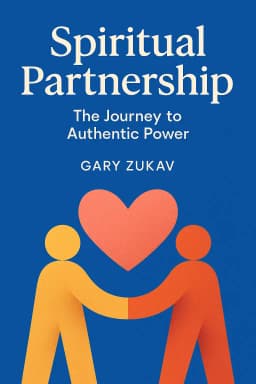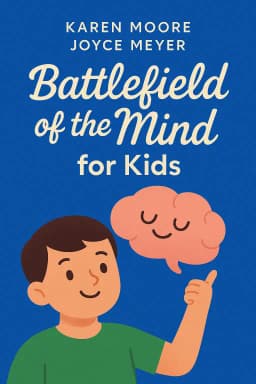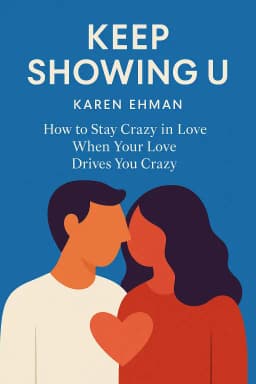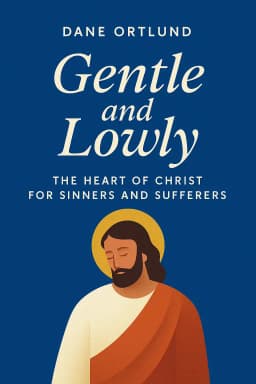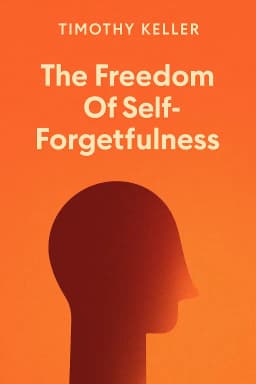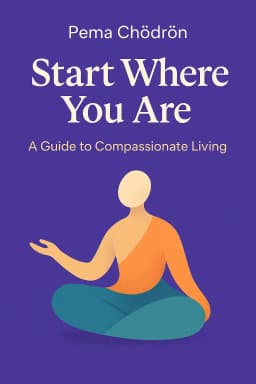
The Truth Lab: Deconstructing Gandhi's Experiments
Golden Hook & Introduction
SECTION
Nova: What if the goal of telling your life story wasn't to build a monument to yourself, but to publish a lab report? A report filled with failed experiments, messy data, and the honest pursuit of a single, overarching question.
kyzm7fw9zj: That’s a powerful framing. It immediately shifts the focus from accomplishment to process. From a polished final product to the messy, valuable work that happens behind the scenes.
Nova: Exactly! And that is precisely the premise of one of the most famous autobiographies ever written: Mahatma Gandhi's. And it’s what we're deconstructing today. I'm Nova, and I'm thrilled to be here with kyzm7fw9zj, whose curious and analytical mind is the perfect lens for this book. Welcome, kyzm7fw9zj.
kyzm7fw9zj: Thanks for having me, Nova. I'm genuinely fascinated by this angle. We think of Gandhi as this monumental figure, but the idea of him as a lifelong experimenter is much more relatable and, frankly, more interesting.
Nova: I completely agree. And that's our roadmap for today. We'll dive deep into this from two perspectives. First, we'll explore the radical idea of viewing an autobiography—and by extension, a life—as a lab notebook. Then, we'll discuss what Gandhi considered the single most important tool for any experiment in truth: a profound sense of humility.
kyzm7fw9zj: A lab notebook and a specific scientific instrument. I like it. Let's get into it.
Deep Dive into Core Topic 1: The Autobiography as a Lab Notebook
SECTION
Nova: Alright, so let's dive into that first idea. The book isn't called 'My Life' or 'My Story.' The full title is 'An Autobiography or The Story of My Experiments with Truth.' That choice of words, 'experiments,' is so deliberate, almost scientific.
kyzm7fw9zj: It’s a disclaimer right in the title. He’s managing expectations from the very first word. He’s not saying, "Here are the answers." He’s saying, "Here is my process for searching."
Nova: You've hit on the exact conflict he faced when he decided to write it. The story goes that in 1925, as he was preparing to write, a close, God-fearing friend came to him with serious doubts. This friend was worried. He said, "What's the point of writing an autobiography? It's a Western practice, a bit self-indulgent. And more importantly, what if you change your principles later in life? People who read your book and follow your example will be led astray."
kyzm7fw9zj: That's a very valid concern. If you present your life as a blueprint, you better be sure the blueprint is perfect. And whose is?
Nova: Nobody's, and Gandhi knew it. His response to his friend's concern is the key to the whole book. He decided to proceed, but with a very specific condition. He wouldn't present his life as a set of commandments. Instead, he would present it as a series of experiments. He explicitly tells the reader that these are just illustrations and that everyone should conduct their own experiments according to their own capacity.
kyzm7fw9zj: That's incredible. He's essentially open-sourcing his personal development. It's less about 'here is my perfect, finished life' and more about 'here is my methodology, warts and all.' It’s like a scientist publishing their methods and raw data, saying, 'Here's what I found, but my context is unique. You should try to replicate this in your own lab and see what you find.'
Nova: Exactly! He completely removes the pressure of being a perfect guru. He says his ultimate goal in life, the thing he's been "pining to achieve," is "self-realization, to see God face to face." He defines this Absolute Truth as God. But he acknowledges that he, a mere mortal, can't possibly grasp that fully. So, the only way to move toward it is through these small, humble, personal experiments in his own life.
kyzm7fw9zj: So it becomes a process of iteration. This is so much more empowering. It makes the idea of moral or personal growth feel less like climbing an impossibly steep mountain and more like a series of small, manageable tests. You know, 'I'll try living with this principle for a while, observe the results, and then adjust my approach.' That’s a framework anyone can use.
Nova: Right? It’s not about a sudden, grand transformation. It's about the patient, daily work of testing and learning. He’s basically giving us permission to be imperfect, as long as we’re sincere in our experimentation.
kyzm7fw9zj: It also implies that failure is just data. In a traditional life story, a failure is a blemish, something to be explained away. In an experiment, a failed test is just as valuable as a successful one, because it tells you what doesn't work. It helps you refine your hypothesis for the next attempt.
Nova: That is such a crucial insight. A failed experiment is just more information. And that brings us to the question of how you conduct these experiments properly. If your life is a lab, what's your most important piece of equipment?
Deep Dive into Core Topic 2: Humility as the Ultimate Scientific Instrument
SECTION
Nova: And that idea of removing ego and just gathering data leads us perfectly to our second point. If your life is an experiment, what's your most important tool? For Gandhi, it wasn't his sharp legal mind or his incredible willpower. It was humility.
kyzm7fw9zj: That feels counter-intuitive to a lot of modern thinking, which prizes confidence, self-assurance, and "faking it 'til you make it." Humility is often seen as a lack of confidence.
Nova: He turns that idea on its head. He makes a pretty radical claim: "The seeker after truth must be humbler than the dust." He believed that arrogance, ego, and pride make it literally impossible to see truth clearly. The ego acts like a filter that distorts all the incoming data.
kyzm7fw9zj: It's the observer effect, but applied to one's own life. The act of observing yourself with a big ego changes the very data you're trying to observe. You start seeing what you want to see, not what's actually there.
Nova: You've just articulated his philosophy perfectly. And he didn't just preach this; he lived it in a way that can be shocking to our modern sensibilities. To illustrate his own constant struggle and his distance from the Absolute Truth he was seeking, he quotes a line from the poet Surdas. It's just devastatingly honest.
kyzm7fw9zj: What does it say?
Nova: He's reflecting on his own inner demons, his "evil passions," as he calls them. And he writes that he feels like the character in the poem who says, and I quote: "Where is there a wretch So wicked and loathsome as I? I have forsaken my Maker, So faithless have I been."
kyzm7fw9zj: Wow. That's... intense. A global leader, a man revered as a saint by millions, describing himself as a wicked and loathsome wretch.
Nova: Exactly. And it's not false modesty. From his perspective, it was a necessary self-assessment. This wasn't a leader trying to project an image of strength. This was a scientist, an experimenter, trying to be brutally honest about the state of his primary instrument—himself.
kyzm7fw9zj: That reframes everything. In today's world, a therapist might say that's a shocking lack of self-esteem. But in his framework, it makes perfect, logical sense. If you're conducting a sensitive experiment, the biggest source of error is always the observer's bias. His "wickedness" or "loathsomeness" is his personal term for his own biases, his ego, his passions—all the things that could cloud the results of his experiments with truth.
Nova: That's such a brilliant way to put it—the observer's bias! He's trying to get a clean reading on his own moral and spiritual state, and he knows that his own ego is the main variable messing up the readings.
kyzm7fw9zj: So, humility isn't weakness. In this context, it's a tool for clarity. It's a commitment to intellectual honesty, but applied to the self. You can't accurately assess a situation, or your own actions, if you're constantly telling yourself a story about how great or right you are. Humility is the discipline of setting that story aside, even for a moment, to see what's actually there.
Nova: The discipline of setting the story aside. I love that. It’s an active, rigorous practice, not a passive state of being. It's the prerequisite for any real self-discovery. You have to be willing to be wrong. You have to be willing to see the "loathsome" parts, because that's also part of the data.
kyzm7fw9zj: And without that data, your experiments are meaningless. You're just confirming your own biases over and over again. You're not actually learning anything new.
Synthesis & Takeaways
SECTION
Nova: So, as we bring this all together, we've really explored two incredibly powerful and interconnected ideas from Gandhi's "lab report." First, the idea of treating your life not as a fixed story to be perfected, but as a series of experiments to be run.
kyzm7fw9zj: Right. And second, the idea that the most essential tool for running those experiments effectively is a profound and rigorous humility—a willingness to see yourself clearly, without the distortion of ego. It’s a shift from a mindset of 'having the right answers' to one of 'having a good process for finding answers.'
Nova: The focus is on the methodology of living, not the final, polished story. It’s so liberating. So, for everyone listening, inspired by this deep, analytical dive into Gandhi's work... what's the real takeaway here? What can we do with this?
kyzm7fw9zj: I think the biggest mistake would be to think the takeaway is 'try to be more like Gandhi.' His experiments—with diet, with celibacy, with non-violence—were his own, tailored to his own questions and his own context.
Nova: That's a great point. He himself warns against that.
kyzm7fw9zj: Exactly. So I think the real call to action from the book is to take his method, not his conclusions. It's to look at our own lives and identify one of our own core assumptions. A belief we hold about ourselves, about our relationships, or about the world. And then ask a simple question: What's one small, safe experiment I could run this week to actually test that belief?
Nova: I love that. Not to prove it right, but just to see what happens.
kyzm7fw9zj: Precisely. Not to win an argument with yourself, but just to gather a little data. Maybe you believe you're 'not a creative person.' The experiment could be to spend 15 minutes writing or drawing with no goal, just to see what emerges. Maybe you believe a certain political viewpoint is totally wrong. The experiment could be to read one well-reasoned article from that perspective with the humble goal of understanding, not refuting. It’s about collecting one new piece of data for your own "Story of Experiments with Truth."
Nova: That is a beautiful and incredibly practical way to start. It takes this grand, philosophical work and turns it into a single, actionable step. Start your own experiment. Gather your own data. kyzm7fw9zj, thank you so much for bringing such a sharp, insightful, and connecting perspective to this. It's been a fascinating exploration.
kyzm7fw9zj: It was my pleasure, Nova. It’s a book that gives you a lot to think about, and a new way to think about it.
